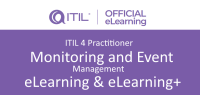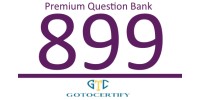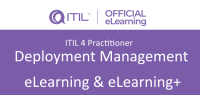What is ISO 27001?
ISO/IEC 27001 is jointly published by the International Organization for Standardisation, and the International Electrotechnical Commission. Defined within the ISO 27001 standard are information security guidelines, requirements intended to protect an organisation's data assets from loss or unauthorised access and recognised means of demonstrating their commitment to information security management through certification.
ISO 27001, includes a risk assessment process, organisational structure, Information classification, Access control mechanisms, physical and technical safeguards, Information security policies, procedures, monitoring and reporting guidelines.
Interested in ISO/IEC 27001 as a differentiator for your business?
The International Organization for Standardisation created the management system standard in response to growing concerns about data breaches, identity theft, and other cyber-attacks. Here we will take you through the ISO 27001 standard, the benefits, and what might be involved for you and your organisation’s information security.
Whether you are looking for a way to improve your company’s cybersecurity posture or need guidance on how to build an Information Security Management System (ISMS), we will explain what ISO 27001 entails so you can make an informed decision about whether it’s suitable for your organisation. Lastly, we’ll explore me how to manage information security and the benefits of using ISO 27001, including operations security, asset management, human resource security, security controls, access control, improved customer trust and reduced risk exposure.
Why do you need ISO/IEC 27001?
ISO 27001 certification assures customers, partners and other stakeholders that your company’s information security infrastructure meets their expectations.
ISO 27001 is the internationally recognised best practice framework for an ISMS and one of the most popular information security management standards worldwide.
The cost of not having an effective Information Security Management System can be high - both financially and reputationally. The standard is a critical component in any organisation’s risk management strategy, and it has become an essential part of many organisations’ IT governance, risk and compliance (GRC) programmes.
The benefits of ISO 27001
1) ISO 27001 will help you reduce Information security and privacy risks
Information security threats are constantly growing. New data breaches make the headlines every day. So more and more organisations are realising that poor infosec can be costly, whether it leads to breaches of their own or their customers’ confidential information.
That’s why so many organisations are creating ISO 27001-certified information security management systems or ISMSs.
An effective ISMS will help you meet all your information security objectives and deliver other benefits too.
And any scale and type of organisation, from government agencies to commercial companies, can use ISO 27001 to create an ISMS.
Several of the ISO 27001 requirements also fulfil those of GDPR and Data Protection Act compliance, legal and regulatory obligations; giving much greater information assurance overall. Implementing ISO 27001 will show regulatory authorities that your organisation takes the security of information it holds seriously and, having identified the risks, done as much as is reasonably possible to address them. Your risk management process will be both robust and easy to demonstrate. And it’s an excellent gateway to other ISO management system standards too.
2) ISO 27001 means saving time and money
Why spend lots of money solving a problem (for example, loss of customer information, risk assessment, business continuity management) in a time of crisis when it costs a fraction of that to prepare for it in advance? With an ISO 27001-certified information security management system, you’ll have all your information security incident management plans and systems set up and ready to go. It’s the most cost-effective way of protecting/keeping your information assets secure.
You’ll base your risk management plans on a robust, thorough risk assessment. Ongoing internal audits will make sure your ISMS meets the ever-evolving threat of digital crime with new security techniques and information security controls. And with our help you can measure the ROI on your information security risk management investment.
You’ll also cut your cost of sales. Customers are increasingly seeking assurance of their supplier relationships’ information security management and data protection capabilities. Your sales department will probably testify to the amount and the length of the 'requests for information’ they regularly have to deal with as part of the sales process and how that is growing all the time. Holding ISO 27001 certification will minimise the detail you need to provide, simplifying and accelerating your sales process.
3) ISO 27001 boosts a reputation and builds trust in the organisation
It's bad enough having your systems hacked and your customer data exposed and exploited. What's worse is when news of that kind of breach starts spreading. It can do severe damage to your reputation and with it your bottom line. With an ISO 27001 ISMS, you'll have carried out a robust risk assessment and created a thorough, practical risk treatment plan. So you'll be in a better position to identify breach risks and prevent them before they happen.
Like many things in business, trust is important. But demonstrating that your Information Security Management Systems (ISMS) has been independently audited by an accredited certification body solidifies that trust. Your customers will quickly and easily see that it's based on secure system engineering principles. They won't need to take the security of your operations on trust, because you'll be able to prove you've met the relevant ISO management system standards.
And managing information security with ISO 27001 is about more than just protecting your information technology and minimising data breaches.
The standard can help you:
- Protect everything from your organization's intellectual property to its confidential financial information
- Put defined information security policies in place to help you manage processes including your access control policy, communications security, system acquisition, information security aspects of business continuity planning and many others
- Make sure your information security incident management is carefully planned and demonstrably effective if and when a compromise happen
- Perform risk assessment and management activities in a clear, practical and transparent way
- Make sure key stakeholders and other third parties are aware of, in agreement with and where necessary fully compliant with your infosec measures
- Meet specific industry regulations or operating procedures, as set by any relevant regulatory bodies
- Secure your employees' and customers' personal data
What needs to be done for achieving ISO 27001?
The core requirements of the information security standard are addressed in clause 4.1 through to 10.2 and the Annex A controls you may choose to implement, subject to your risk assessment, risk treatment plan and work, are covered in A.5 through to A.18.
If you are looking to achieve ISO 27001 you will be expected to meet all the core ISO 27001 requirements. One of the fundamental core requirements in that (6.1) is to identify, assess, evaluate and treat information security risks. Out of that risk assessment and management process, the ISMS will help determine which of the ISO 27001 Annex A reference control objectives (information security controls) may need to be applied in the management of those information security-oriented risks.
Some organisations may choose not to take their Information Security Management System to certification but simply align to the ISO 27001 standard. This might be okay to meet internal pressures however delivers less value to key stakeholders externally who increasingly look for the assurances a UKAS (or similar accredited certification body) independently certified ISO 27001 delivers.
ISO/IEC 27001 History
The latest version of ISO 27001 can be traced back to the British Standard Institution BSI-7799, published in 1995. It was originally written by the DTI and, after many revisions, ISO turned it into an internationally recognised, best-practice information security standard in the ISO 27000 series to help organisations keep intellectual property and information assets secure.
ISO/IEC 27001:2022 is the most current version of the international standard and incorporates changes made in 2017.






